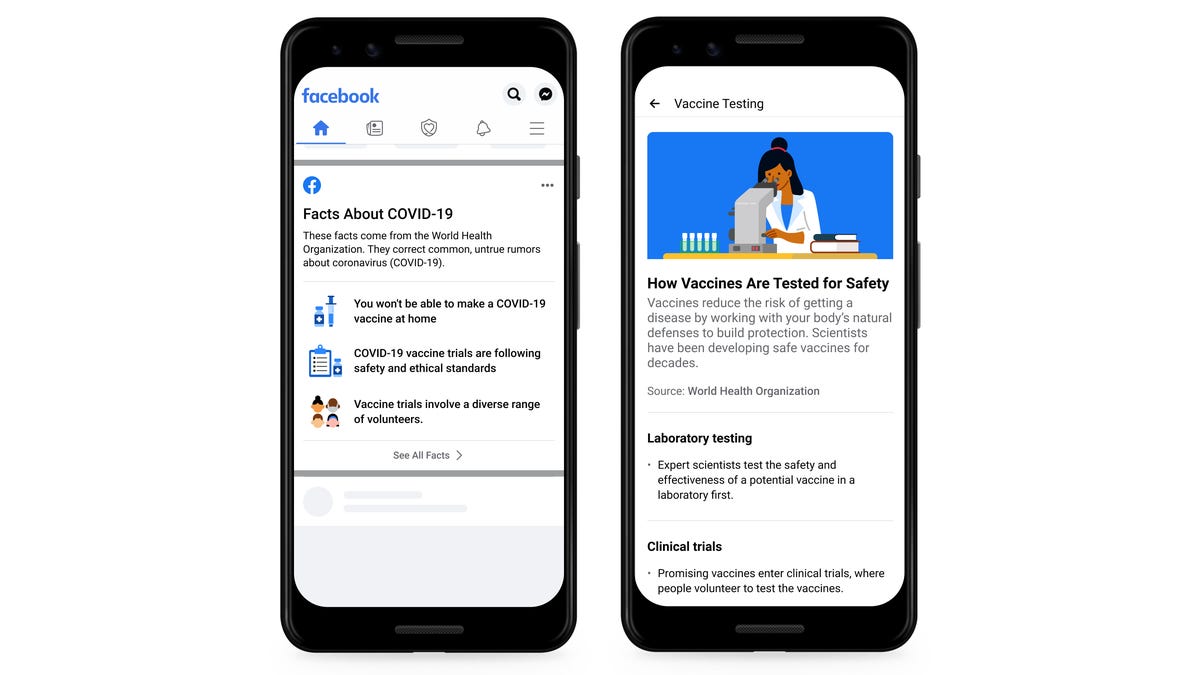Facebook pledges to remove false claims about COVID-19 vaccines
The tech giant updates its misinformation policies ahead of the first batch of vaccines being administered next week.

Facebook will remove vaccine-related falsehoods.
As the UK is on the brink of starting to administer COVID-19 vaccinations, Facebook has updated its misinformation policy to reflect that it will remove false claims about vaccines. The tech giant updated its Coronavirus Newsroom post on Thursday with its commitment to taking down false information that has been debunked by public health experts regarding vaccines across Facebook and Instagram.
Facebook said that it has been removing misinformation about COVID-19, including conspiracy theories linking it to 5G or posts that claim it doesn't exist, since January. To date, the company says, it has pulled down around 12 million pieces of content of this type on Facebook and on Instagram, which it also owns.
News last month that three COVID-19 vaccines -- one by Pzifer, one by Moderna and one by Oxford University and Astra Zeneca -- have proved successful in trials was celebrated all around the world. But there has also been a backlash from the anti-vaccine movement, which continues to push narratives that have been widely debunked by scientists about vaccines being harmful.
Governments, health authorities and social media platforms now face a critical challenge to ensure people are provided with factually accurate information about the vaccines in order that they can be administered to keep people safe and protected from the virus.
The UK on Wednesday approved the Pfizer vaccination for use and plans to start administering it next week. Facebook said that in the UK it's working closely with the government and the NHS to support their communication plans when it comes to rolling out the vaccine. In the newsroom post, the company outlined the kind of material it expects to remove.
"This could include false claims about the safety, efficacy, ingredients or side effects of the vaccines," it said. "For example, we will remove false claims that COVID-19 vaccines contain microchips, or anything else that isn't on the official vaccine ingredient list. We will also remove conspiracy theories about COVID-19 vaccines that we know today are false: like specific populations are being used without their consent to test the vaccine's safety."
In October, Facebook banned ads that discourage people from getting vaccines and will continue to adapt its strategy for tackling false claims. It said it plans to regularly update the claims it removes based on guidance from public health authorities as they learn more.

